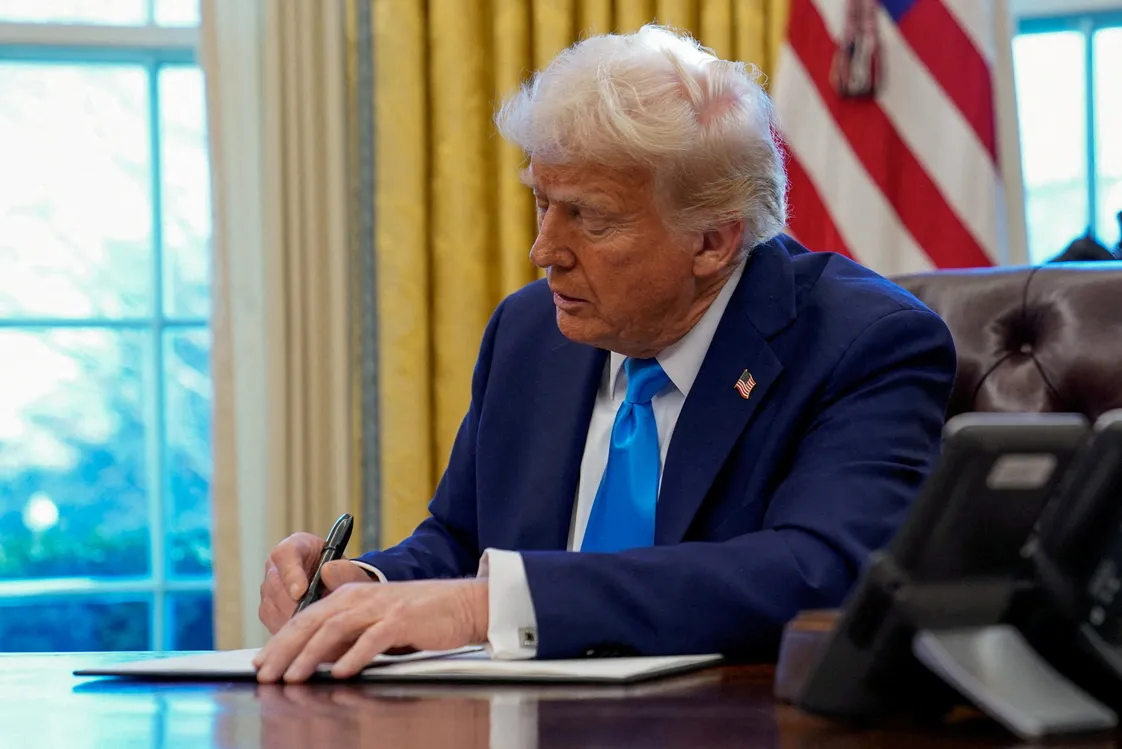Supreme Court will weigh in on Trump plans to restrict birthright citizenship
- Ani

- Apr 17
- 3 min read
The Supreme Court on Thursday said it would weigh in on the Trump administration's request that it be allowed to broadly enforce its new restrictions on birthright citizenship while the policy is being litigated.
The court said it will hear oral arguments on May 15.
It's the first challenge to the new administration's policies that the justices have taken up for public discussion.
“I am so happy," President Donald Trump said Thursday. "I think the case has been so misunderstood.”The administration had asked the court to scale back the nationwide actions that judges in Maryland, Massachusetts and Washington issued to pause Trump's order limiting birthright citizenship.
The Department of Justice said Trump should be able to enforce the policy for everyone except the people directly named in the lawsuits and those who live in states that have sued if the court thinks states have a legal right to challenge the order. The government also wanted to be able to develop guidance on how it will implement Trump's directive if it is upheld.
Rather than focusing on the validity of Trump's executive action, the DOJ argued that a judge in one part of the country shouldn't be able to block actions nationally.
"Years of experience have shown that the Executive Branch cannot properly perform its functions if any judge anywhere can enjoin every presidential action everywhere," Sarah Harris, an attorney with the DOJ, told the court.
Washington state Attorney General Nicholas Brown countered that citizenship rules must be uniform across the country. A patchwork rule is "unworkable" for states and would leave tens of thousands of infants subject to removal or detention, even though the government has not shown it is likely to eventually win the court fight, he argued.
"If any injunction warranted a nationwide scope, it is this one," Brown wrote in his response to Trump's appeal.
`Blatantly unconstitutional'
The first federal judge to issue an opinion, U.S. District Judge John Coughenour in Seattle, called Trump's order "blatantly unconstitutional."
An appeals court refused to pause Coughenour's nationwide injunction. Two other appeals courts likewise backed injunctions issued by federal judges in Maryland and Massachusetts.
Trump has said the Supreme Court will ultimately agree with his interpretation of the 14th Amendment's citizenship promise, a change he said is needed to bolster security along the southern U.S. border.
The amendment states that all "persons born or naturalized in the United States, and subject to the jurisdiction thereof, are citizens of the United States and of the state wherein they reside."
The Trump administration maintains that right was intended to help formerly enslaved people after the Emancipation Proclamation and doesn't cover children of people who entered the country without proper authorization.
“It’s all about slavery, and if you look it at that way, we should win that case," Trump said Thursday.
The "incorrect position" that the government has relied on, the administration argues, has led to "birth tourism" − expectant mothers traveling to the United States to secure citizenship for their children.
Twenty Republican attorneys general backed Trump's Supreme Court appeal, as did gun rights groups.
Attorneys for immigrant rights groups and five pregnant mothers who sued to protect birthright citizenship said Trump's order violates the plain text of the Constitution, common law history, Supreme Court precedent and more than a century of consistent practice.
"The Executive Branch has been complying with the settled interpretation of the Citizenship Clause for 125 years," they told the Supreme Court, "and the government has demonstrated no urgent need to change now."





























































Comments